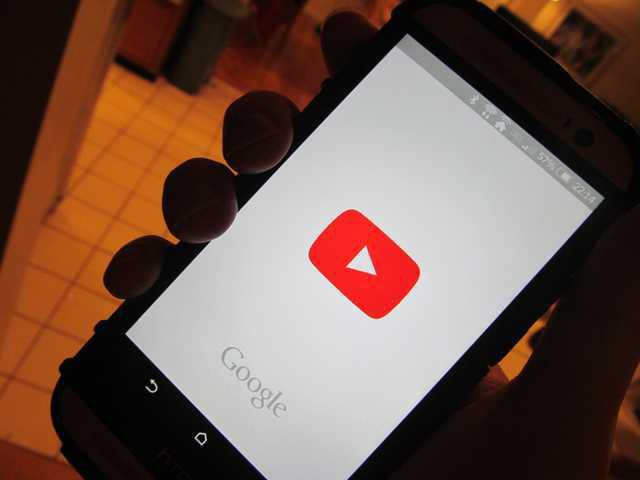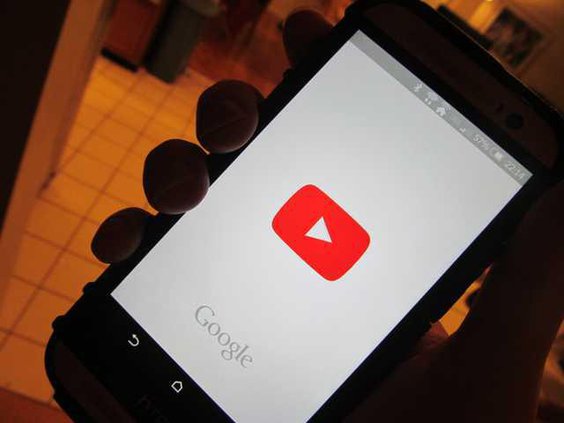YouTube announced Monday that it deleted hundreds of thousands of disturbing child videos from its platform.
The company said in a blog post that it cracked down on accounts and videos that show children in disturbing and exploitative situations, according to BuzzFeed News.
YouTube said in a statement to BuzzFeed that it removed more than 270 accounts and 150,000 videos. The company also turned off comments for more than 625,000 videos that were known to be used by child predators.
"Finally, we removed ads from nearly 2 million videos and over 50,000 channels masquerading as family friendly content," YouTube said.
YouTubes crackdown comes as advertisers fled the Google subsidiary after they realized their ads had been paired with offensive content, including the comments section, according to Vice News, which first reported the story.
Advertisers such as Adidas, Mars and Hewlett-Packard halted their ads on YouTube because of the revelations over these videos, Vice reported.
Reports of sexually explicit videos on YouTube have circulated for years. Creepy YouTube channels would often trick children into watching violent videos, according to Mashable.
The videos would appear to be about cartoons of comic book heroes, like Spider-Man, or Disney princesses, like Elsa. But then the videos would take a drastic turn when Elsa and Spider-Man arm themselves with automatic weapons, Mashable reported.
The knockoff videos often fooled parents.
It's perfectly legitimate for a parent to believe that something called Peppa Pig is going to be Peppa Pig," London School of Economics online safety expert Sonia Livingstone told the BBC. "And I think many of them have come to trust YouTube as a way of entertaining your child for 10 minutes while the parent makes a phone call. I think if it wants to be a trusted brand then parents should know that protection is in place."
Laura June wrote about her experience with the videos in a piece for The Outline, encouraging parents to learn from her example of stumbling onto these videos.
She said itd be best for parents to remain cautious with what their children read and watch online.
James Bridle wrote in an essay on Medium that YouTube needs to do more to weed out these videos, considering explicit content makes up the companys subculture.
"I have no idea how they can respond without shutting down the service itself, and most systems which resemble it," he writes. "We have built a world which operates at scale, where human oversight is simply impossible. (T)his is being done by people and by things and by a combination of things and people. Responsibility for its outcomes is impossible to assign but the damage is very, very real indeed."
The company said in a blog post that it cracked down on accounts and videos that show children in disturbing and exploitative situations, according to BuzzFeed News.
YouTube said in a statement to BuzzFeed that it removed more than 270 accounts and 150,000 videos. The company also turned off comments for more than 625,000 videos that were known to be used by child predators.
"Finally, we removed ads from nearly 2 million videos and over 50,000 channels masquerading as family friendly content," YouTube said.
YouTubes crackdown comes as advertisers fled the Google subsidiary after they realized their ads had been paired with offensive content, including the comments section, according to Vice News, which first reported the story.
Advertisers such as Adidas, Mars and Hewlett-Packard halted their ads on YouTube because of the revelations over these videos, Vice reported.
Reports of sexually explicit videos on YouTube have circulated for years. Creepy YouTube channels would often trick children into watching violent videos, according to Mashable.
The videos would appear to be about cartoons of comic book heroes, like Spider-Man, or Disney princesses, like Elsa. But then the videos would take a drastic turn when Elsa and Spider-Man arm themselves with automatic weapons, Mashable reported.
The knockoff videos often fooled parents.
It's perfectly legitimate for a parent to believe that something called Peppa Pig is going to be Peppa Pig," London School of Economics online safety expert Sonia Livingstone told the BBC. "And I think many of them have come to trust YouTube as a way of entertaining your child for 10 minutes while the parent makes a phone call. I think if it wants to be a trusted brand then parents should know that protection is in place."
Laura June wrote about her experience with the videos in a piece for The Outline, encouraging parents to learn from her example of stumbling onto these videos.
She said itd be best for parents to remain cautious with what their children read and watch online.
James Bridle wrote in an essay on Medium that YouTube needs to do more to weed out these videos, considering explicit content makes up the companys subculture.
"I have no idea how they can respond without shutting down the service itself, and most systems which resemble it," he writes. "We have built a world which operates at scale, where human oversight is simply impossible. (T)his is being done by people and by things and by a combination of things and people. Responsibility for its outcomes is impossible to assign but the damage is very, very real indeed."








